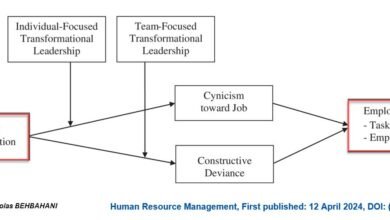
By | Editor
In their groundbreaking book, “Jugaad Innovation,” Navi Radjou, Jaideep Prabhu, and Simone Ahuja revolutionize the conventional thinking and practices of traditional organizations.
Amidst the escalating global competition and soaring R&D budgets, Jugaad: Frugal Innovation provides a refreshing perspective on how to cultivate innovation, adaptability, and achieve more with fewer resources.
In the vast and diverse landscape of India, where challenges and opportunities coexist in abundance, a unique approach to problem-solving has emerged over the years. This approach is called “Jugaad,” a Hindi word that loosely translates to “innovative improvisation” or “making do with what you have.” Jugaad is a quintessential Indian way of finding creative solutions to complex problems, often under resource constraints.
The term “Jugaad” traces its origins back to the rural heartlands of India, where villagers would use their ingenuity to fix broken tools, machinery, or even vehicles, using whatever materials were available to them. It embodies the spirit of frugality and resilience, which are deeply ingrained in Indian culture.
At its core, Jugaad is about being resourceful and adaptive. It encourages individuals to think outside the box, to be flexible and innovative in their approaches, and to quickly adapt to changing circumstances. This ethos of Jugaad is prevalent not only in rural settings but also in the bustling urban cities of India, where people face diverse challenges daily.
Jugaad embodies the spirit of Indian ingenuity, resourcefulness, and resilience. It reflects the adaptive nature of a country that has faced countless challenges throughout its history. As India continues to progress and embrace modernization, the essence of Jugaad remains an integral part of its cultural identity and a reminder that innovation can thrive even in the face of adversity.
Key aspects of the Indian way of innovation, Jugaad, include:
Simplicity: Jugaad often involves finding straightforward and uncomplicated solutions to problems. Complexity is minimized, and the focus is on achieving practical results with minimal resources.
Frugality: India’s Jugaad culture is deeply rooted in the belief of doing more with less. It encourages individuals to repurpose, reuse, and recycle existing materials, transforming waste into valuable resources.
Agility: Jugaad necessitates a quick response to challenges. It promotes a mindset that embraces change and readily adapts to new situations, making it particularly relevant in fast-paced environments.
Unconventional thinking: Jugaad encourages individuals to question conventional wisdom and explore unconventional avenues for problem-solving. This out-of-the-box thinking is vital in situations where traditional methods may not be feasible or efficient.
Community collaboration: Jugaad is not an individualistic endeavor; it thrives on collective wisdom and collaboration. In rural areas, entire communities come together to find innovative solutions, whereas in urban settings, individuals network and leverage each other’s skills to overcome obstacles.
Ingenuity and jugaad jugaad: The term “jugaad jugaad” highlights the iterative nature of this approach. When the first improvised solution isn’t entirely successful, individuals iterate and refine their ideas until a workable and efficient solution is found.
Indian jugaad innovation is a testament to the creativity and ingenuity of the people who find unique and unconventional solutions to everyday problems. It is all about finding innovative solutions using the resources at hand, even in the absence of modern technology. It highlights the power of human creativity, adaptability, and resourcefulness to overcome challenges. Throughout history, Indians have demonstrated incredible jugaad skills, navigating through various situations with limited resources and making the best out of what they have.
Here are a few examples of how Indians have showcased jugaad without relying on modern technology:
Water Filter using Ash: In rural areas with limited access to clean water, some people have ingeniously used discarded ash from burnt wood or cow dung patties as a natural water filter. The ash is placed in a porous clay pot or a container with small holes, and water is allowed to percolate through it, effectively removing impurities and sediment.
Bicycle Water Pump: In agricultural areas where electricity is scarce, farmers have repurposed old bicycles into water pumps. They attach a simple mechanism to the bicycle’s rear wheel, which, when pedaled, drives a pump that draws water from wells or ponds, making irrigation more accessible.
Mobile Charging on the Go: With the widespread use of mobile phones across India, some enterprising individuals have converted cycles and auto-rickshaws into mobile charging stations. They attach a dynamo to the wheels, generating electricity as the vehicle moves, and provide charging services to people in remote areas.
Mass Rapid Transportation System : An Indian has managed to use solar panels integrated into the structure of the roof of a bike to harness sunlight and convert it into electricity. He has come up with 7 seater E Bike With Unlimited Range
Making a Car with Bed :
Coconut Tree Climbing Machine: Climbing coconut trees can be dangerous and labor-intensive. To make this task more efficient, a unique coconut tree climbing machine was invented. It consists of a harness and a set of leg stirrups that allow the climber to ascend the tree quickly and safely.
Earthen Refrigerators: In areas without electricity or modern refrigeration, people have crafted simple and effective earthen refrigerators. These traditional refrigerators, known as “mitti coolers,” are made from clay and are designed to keep perishables cool by using the evaporation of water to maintain a lower temperature inside.
Eco-friendly Toilets: In rural areas where modern plumbing is lacking, people have designed eco-friendly toilets that use minimal water or none at all. These toilets, often referred to as “eco-toilets” or “dry toilets,” help in waste decomposition and contribute to environmental sustainability.
Virtual Reality without Technology: A garment shop owner helps customers to simulate how a shirt looks on them, without wearing and without any VR Technology by simplying creating a Jugaad Template and inserting the cloth into it.
These examples demonstrate how Indians have leveraged their creativity, traditional knowledge, and natural resources to develop ingenious solutions that cater to their specific needs. Jugaad is not just a concept; it is a way of life that fosters resilience, adaptability, and sustainable living, which has been an integral part of India’s cultural heritage for generations.
It demonstrate the remarkable ability of individuals to adapt to their circumstances and find pragmatic solutions to everyday challenges. While some of these solutions might not meet industrial standards or be ideal for large-scale implementation, they exemplify the spirit of creativity, resilience, and problem-solving that is deeply ingrained in Indian culture.
jugaad represents a can-do attitude that pushes boundaries, breaks down social barriers, and keeps things interesting.
Removing elitism from Innovation
Innovation in the West has often been associated with catering to the elite segments of society, focused on luxury and refinement. This trend has led to the development of cutting-edge technologies and high-end products, but it has also created a divide where the benefits of innovation primarily reach those who can afford them. However, in contrast, the Indian concept of jugaad has played a transformative role by democratizing innovation and making it accessible to all, regardless of social or economic status.
Jugaad has played a pivotal role in removing the elitism from innovation. It has shifted the paradigm from luxury-focused creations to practical, accessible, and locally relevant solutions that cater to the needs of the masses. By democratizing innovation and promoting frugality, jugaad has not only empowered individuals but also enriched the global discourse on what constitutes impactful and inclusive problem-solving. As the world looks towards a more sustainable and equitable future, the spirit of jugaad stands as a beacon, reminding us that ingenuity and resourcefulness can thrive even in the face of adversity.
Over the years, Jugaad has gained international attention, with many seeing it as a potential source of inspiration for fostering innovation in resource-constrained environments. Its principles have influenced entrepreneurial ventures and management philosophies worldwide, encouraging individuals and organizations to find innovative solutions with minimal resources. By leveraging frugal innovation and ingenuity, individuals and companies can uncover groundbreaking solutions to complex challenges and establish a strong competitive edge in their respective industries.
India’s spirit of jugaad understands the issues faced by low-income, non-mainstream consumers.
why can’t its creations be scaled and distributed to serve similar populations around the globe?
Republished with permission and originally published at Ramesh Ranjan’s LinkedIn






